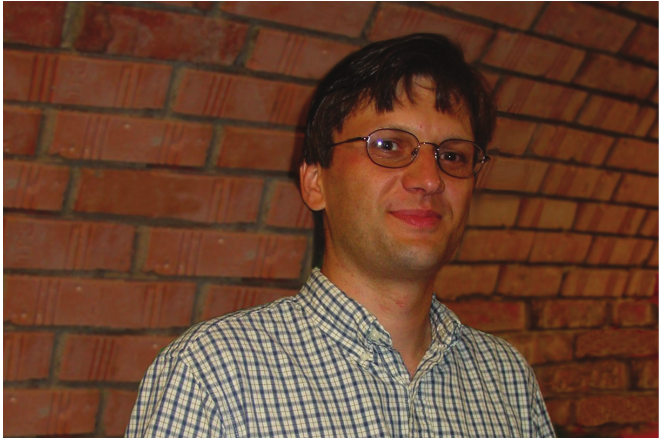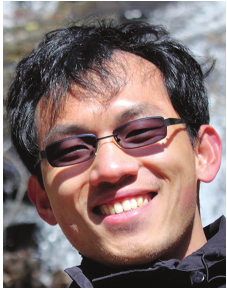- You are here:
- Home
June 13, 2022
For the full article, please click here. Below are a few excerpts from the article.
Legacy of Robin Thomas
by Chun-Hung Liu
Communicated by Notices Associate Editor Emilie Purvine
Robin Thomas, a renowned mathematician, passed away on March 26, 2020, following a long struggle against Amyotrophic Lateral Sclerosis (ALS). He was born in Czechoslovakia in 1962 and earned his doctoral degree in 1985 from Charles University. Following the invitation of Neil Robertson and Paul Seymour, Robin arrived in the United States in 1988 and had positions at Ohio State University and Bellcore. He joined Georgia Tech in 1989 as a faculty member and was appointed a Regent’s Professor in 2010. In 2016, he received the Class of 1934 Distinguished Professor Award, the highest honor for a professor at Georgia Tech.
Robin’s research was in combinatorics, especially in structural graph theory, with applications to different branches of mathematics and computer science. He was awarded the Fulkerson Prize twice: in 1994 for the proof of the 5-color case of Hadwiger’s conjecture and in 2009 for the proof of the Strong Perfect Graph Theorem. In 2011, he was awarded the Karel Janeček Foundation Neuron Prize for Lifetime Achievement in Mathematics. He became an inaugural fellow of the American Mathematical Society in 2012 and a fellow of the Society for Industrial and Applied Mathematics in 2018.
In addition to his prominent achievements in research, Robin’s remarkable leadership had a profound influence in education. Robin served as the director of the Algorithms, Combinatorics, and Optimization (ACO) program at Georgia Tech from 2006 to 2019. The ACO program at Georgia Tech, founded around 1991, is an elite interdisciplinary doctoral program that combines three rapidly growing research areas in computer science, mathematics, and industrial engineering. Robin was involved in the founding of the ACO program and was the second director of the program. His long-term service preserved and enhanced the prestigious reputation of the program.
Sadly, in 2008, Robin was diagnosed with ALS which gradually decreased his muscle strength, resulting in difficulty moving, speaking, and breathing. But he never gave up working. He delivered a very encouraging commencement address at Georgia Tech in 2016. He kept doing research, teaching, advising students, and leading the ACO program until a few months prior to his tragic passing in 2020. Indeed, he accomplished this all with truly remarkable diligence and passion.
Graph Coloring
Arguably one of the most famous problems in graph theory is the Four Color Problem, which asks whether every planar graph is 4-colorable (i.e., the vertices can be colored with 4 colors so that any two adjacent vertices receive different colors), raised by Guthrie in 1852. Even though this question looks elementary, it is equivalent to numerous statements in different branches of mathematics and is surprisingly difficult to prove. Robin made significant contributions on graph coloring, mainly related to the Four Color Problem and its variants.
A proof of the Four Color Problem was published by Appel and Haken in the 1970s. Even though this proof represents a major breakthrough, it was not fully accepted for two reasons: one is that part of the proof uses a computer and cannot be checked by hand, and the other is that the part of the proof that is supposed to be checked by hand is extremely complicated and tedious. Robertson, Sanders, Seymour, and Robin tried to read this proof, but very soon gave up. They decided to make their own proof, and they did it in the 1990s. Though their proof still relies on a computer, it is significantly simpler and has been independently verified (including the computer part) by different groups of people. Due to this work, now it is safe to call it the Four Color Theorem.
Leadership and Mentorship
Besides Robin’s remarkable mentorship witnessed by prolific work joint with his students and postdocs mentioned in previous sections, we briefly remark on Robin’s long-term leadership for the ACO program.
The Algorithms, Combinatorics, and Optimization (ACO) program at Georgia Tech is the oldest interdisciplinary PhD program at Georgia Tech founded around 1991. It is one of only two programs of their named genre in the United States. (The other ACO program is at Carnegie Mellon University created one or two years earlier than the one at Georgia Tech.) The ACO program highlights three rapidly growing areas of research: analysis of algorithms, combinatorics, and discrete and combinatorial optimization. As we have seen in previous sections, Robin’s work spans all three areas and shows that the boundary line between those areas is vague. Many faculties in different departments of Georgia Tech had worked on related areas since the 1970s, motivating the creation of the ACO program with a unique curriculum design that spans three academic units in Georgia Tech.
In 1993, Robin’s student, Daniel Sanders, became the first graduate of the ACO program. Robin was the second director of the ACO program, serving from 2006 to 2019. When Robin took over the position from the first director, Richard Duke, the ACO program was already well-established in the sense that the concerns about its viability and appeal to applicants with the highest quality had essentially resolved. Robin not only maintained the prestige of the ACO program but also elevated it. By 2011, the ACO program was considered an elite academic program by any of the usual metrics. Today, 30 years after its establishment, the ACO program remains strong and thriving. Robin’s long-term service and extraordinary contributions from other affiliated faculties definitely played important roles. ACO alumni gathered at Georgia Tech in 2017 to celebrate the 25th anniversary of the ACO program and gave public talks. Many of them recalled their days at Georgia Tech and the graph theory course taught by Robin. Indeed, Robin was part of the daily life of an ACO person.
We close this article by including contributions from some of Robin’s former students and postdocs that highlight his excellent mentoring.
Luke Postle
As his PhD student, Robin taught me how to think about research. An excellent researcher, Robin had a wonderful taste in problems. While we both shared a love of graph coloring, particularly the Four Color Theorem and all its extensions and generalizations, Robin was always open to a new problem if it was natural and well-motivated. Robin taught me to never shy away from the hard problems of mathematics but instead to embrace them, to believe that problems worth working on are their own reward.
Robin also taught me the importance of communicating mathematical ideas. Through Robin’s guidance during our many collaborations, I learned how to write mathematics professionally, to understand that technical writing was not about persuasion but precision. I learned that a colleague reading my paper had to be able to reconstruct exactly what I was doing without having me there to walk them through it. For presentations, Robin instilled in me that each slide should carry its own weight. Since I graduated in 2012, I have taken to heart all the lessons I learned from Robin. Robin shaped how I think about mathematics and how I approach research, writing, and presentations. To this day, I still find myself asking what would Robin say?
Robin was the best mentor I ever had. I can honestly say I would not be where I am today as a tenured professor if it were not for Robin; indeed, I wonder sometimes if I would even be in math. Robin literally changed my life but he also changed me. He taught me many things but most of all he taught me by example with his constant courage, perseverance, and enthusiasm in the face of adversity.
Luke Postle is an associate professor at University of Waterloo. His email address is lpostle@uwaterloo.ca.
Dan Král’
I first met Robin in 1999, during the symposium on Graph Drawing in Prague where he gave an invited plenary talk on graph planarity and related topics. I still remember his talk today, which was given with crystal clarity whilst covering so many deep results from the theory of graph minors, a rapidly emerging area at that time. In 2001, Robin gave an invited talk at the first workshop of the GROW series and during this workshop, I became engrossed in a detailed discussion with Robin concerning the extension of Erdős-Posa type results on planar graphs (that I had obtained earlier) to surfaces of higher genus. It was extremely impressive how broad and deep Robin’s knowledge was, not only of graph theory, but across the entire field of mathematics. This made me realize the importance of seeing mathematics in its unity and led me to devote a significant amount of time while working on my PhD to learning topics from other areas of mathematics and computer science, even if I did not intend to do any research in those areas. In 2005, I was honored to become Robin’s postdoc and the year that I spent at Georgia Tech really changed the direction of my research career. Of course, I learnt a lot from graph theory while working with Robin but it was his open-minded approach to mathematics, graph theory in particular, and the routine involvement of computers in his work which have served as a huge source of inspiration during my academic career. However, Robin was not only an outstanding researcher but also an excellent teacher as I witnessed during my postdoc stay and frequent subsequent visits to Georgia Tech. He paid extreme attention to the delivery of material in his classes and I am sure he would not mind me sharing a brief story related to this. Once whilst having lunch with Robin, a student that Robin had taught a couple of years earlier came to thank him for conducting the class in such a way that he could build so much upon it in his forthcoming years at Georgia Tech. Certainly in my view, this is one of the greatest accolades a teacher can receive! Robin was, and still is, a source of inspiration for my academic work and, until his untimely passing, I continued to consult him for scientific advice on various matters. I stay very much indebted to Robin for the amount I learnt from him, his overall support and a great deal of inspiration, all of which are impossible to comprehend in words.
Dan Král’ is a Donald Ervin Knuth Professor at Masaryk University and a honorary professor at University of Warwick. His email address is dkral@fi.muni.cz.
Acknowledgment
The author thanks Sigrun Andradottir, Luke Postle, and Petr Hliněný for some suggestions when preparing this article.


